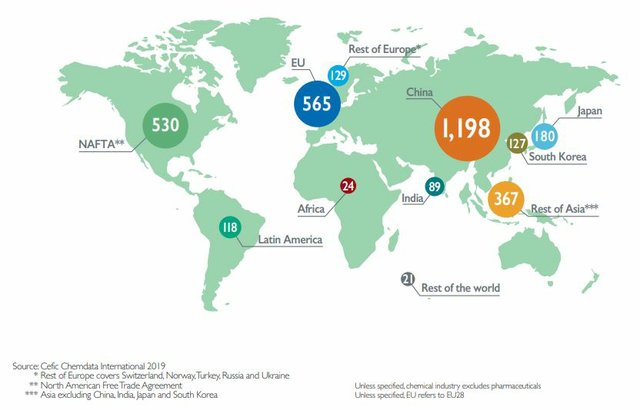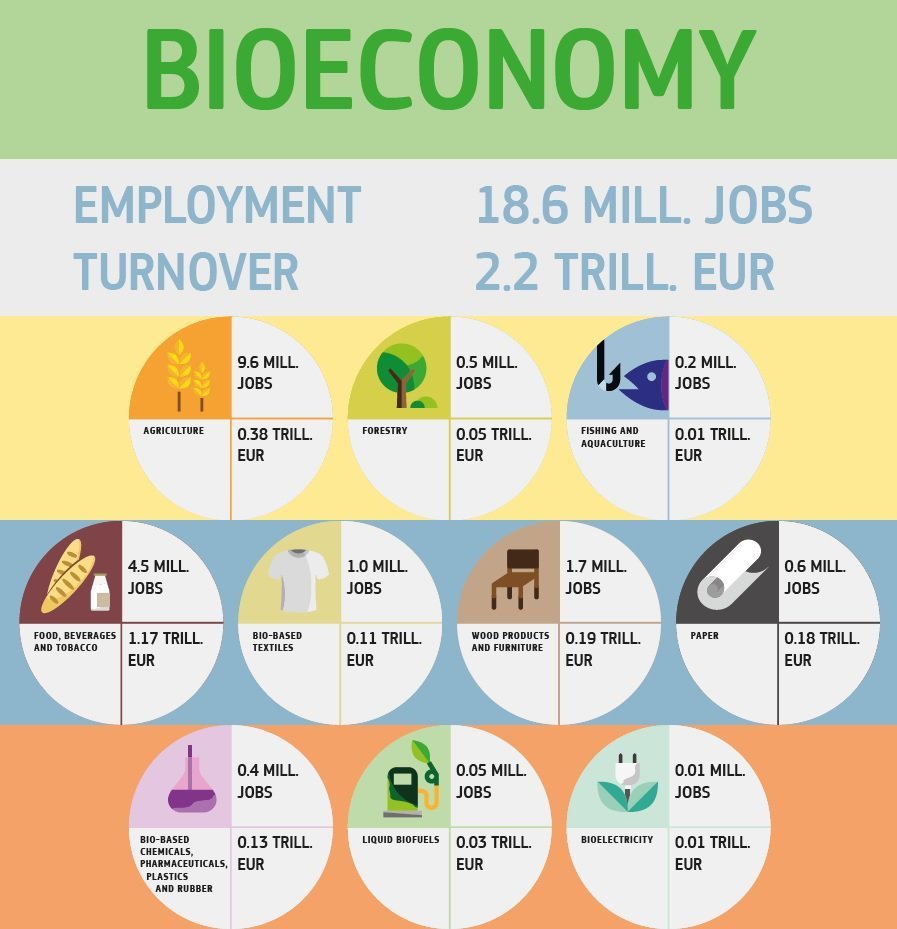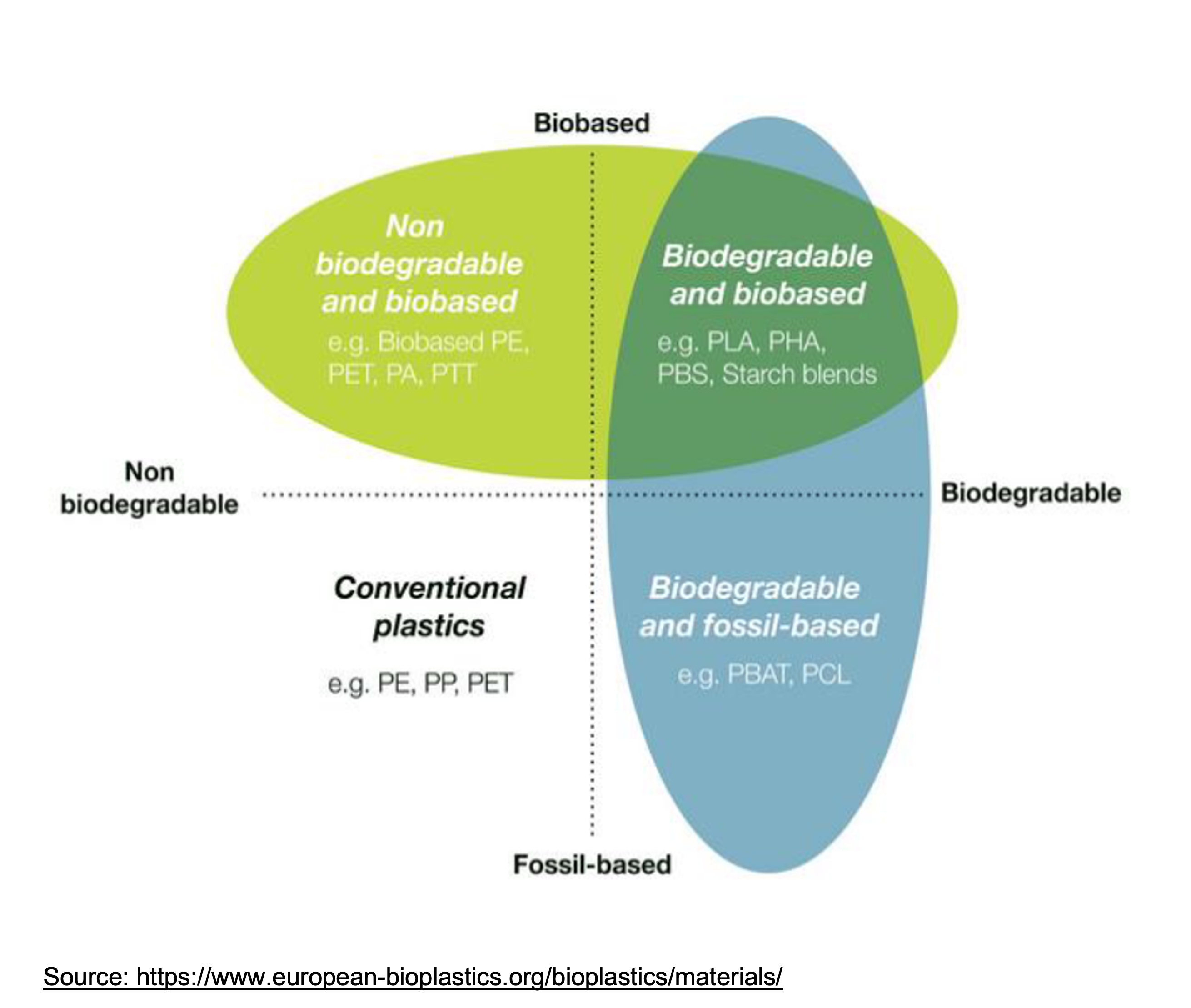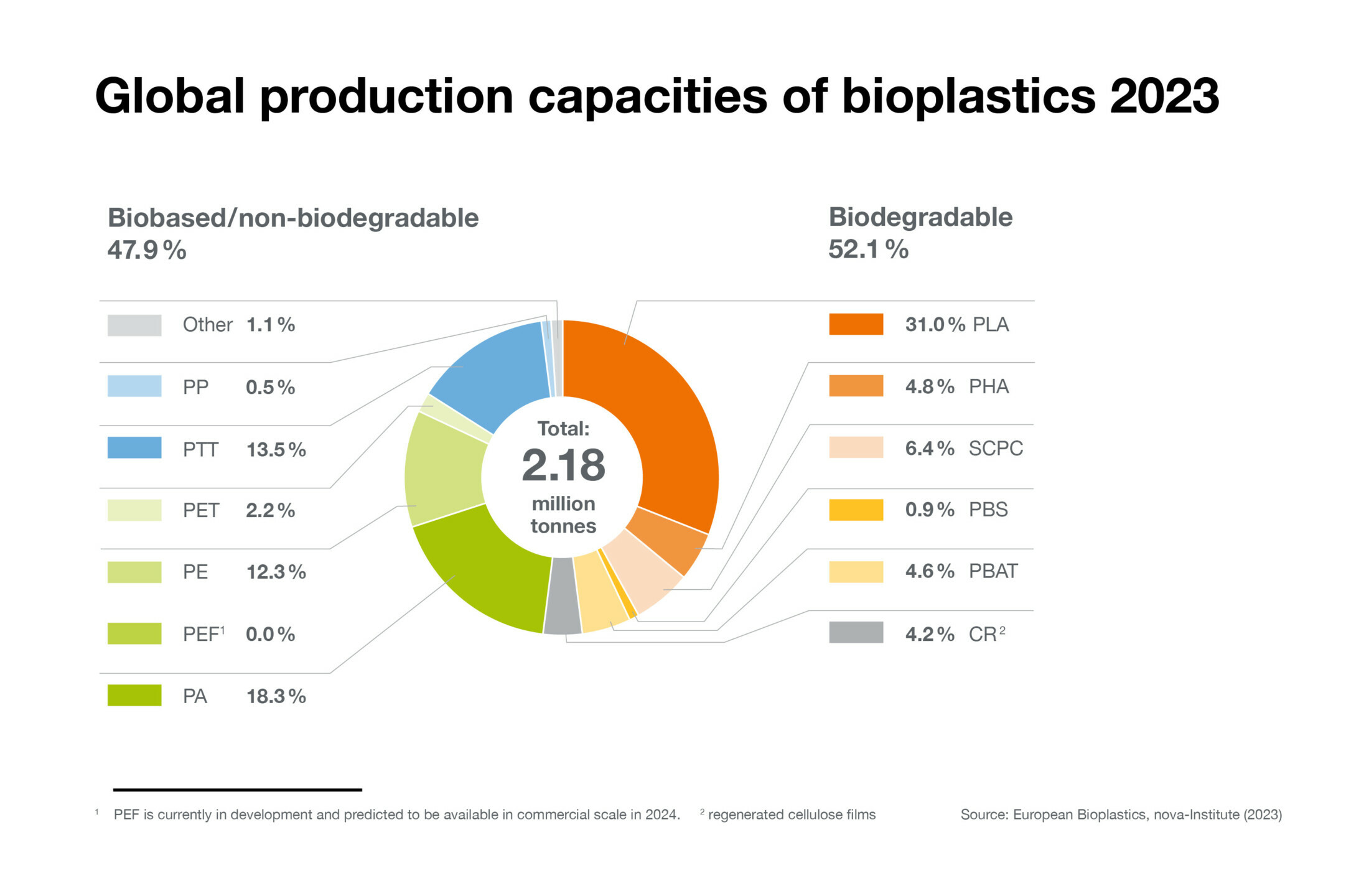In 2018, global trade in chemicals was valued at approximately 3347 trillion Euros (https://cefic.org/). Many of these chemical compounds can be produced biologically through (1) engineering cell metabolism, (2) designing new modified microbial strains and (3) bioconversion. Industry 5.0 and industrial biotechnology respond to the urgency of mitigating environmental impact and the demand for sustainable products and processes.


Building blocks and bio-based polymers have a lower environmental impact compared to their fossil-derived counterparts, considering the type of effect on climate change and also the consumption of non-renewable energy.
In 2016, the bioeconomy sector in the EU-28 was worth EUR 2.2 trillion, providing 18.6 M jobs and accounting for 9% of the entire economic sector.
Global bioplastics production is set to increase significantly from 2.18 M tonnes in 2023 to around 7.43 M tonnes in 2028.
Galatea Biotech focuses on the production of bioplastics. It is estimated that the production of bioplastics will grow by up to 20% in the next five years. Bioplastics are all those plastics that do not originate from fossil resources and are also biodegradable. One of the best plastics is polylactic acid (PLA), a rather virtuous polymer; it can be produced from bio-based resources and is completely biodegradable.


PLA is a plastic that has been known since the middle of the last century and is a very interesting polymer due to its peculiar characteristics including the fact that it is completely biodegradable and fully compostable under industrial conditions.
When PLA degrades, it has zero environmental impact, despite having similar characteristics to traditional plastics such as polyethylene, polycarbonate and polystyrene.